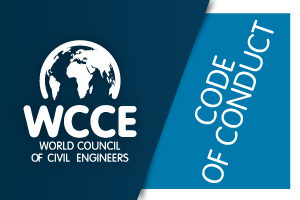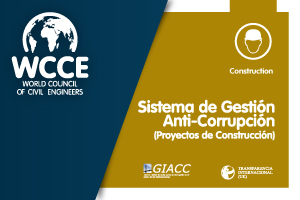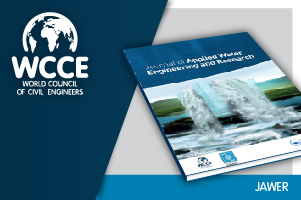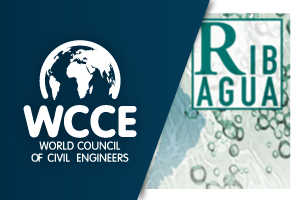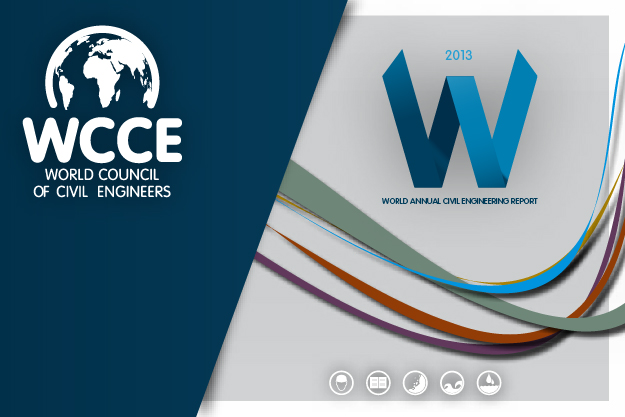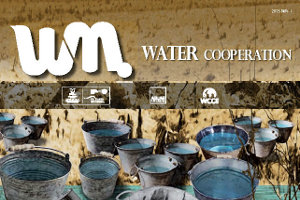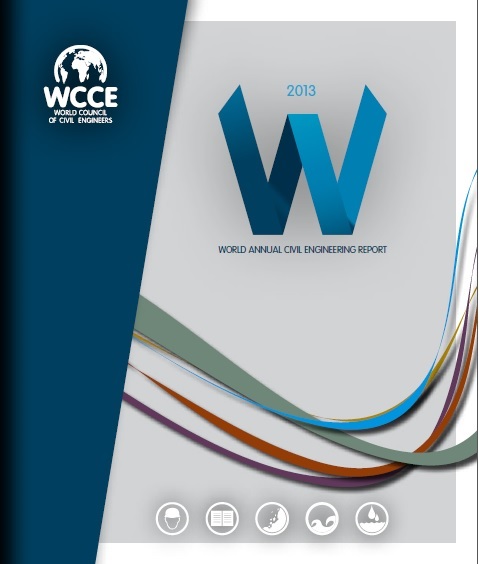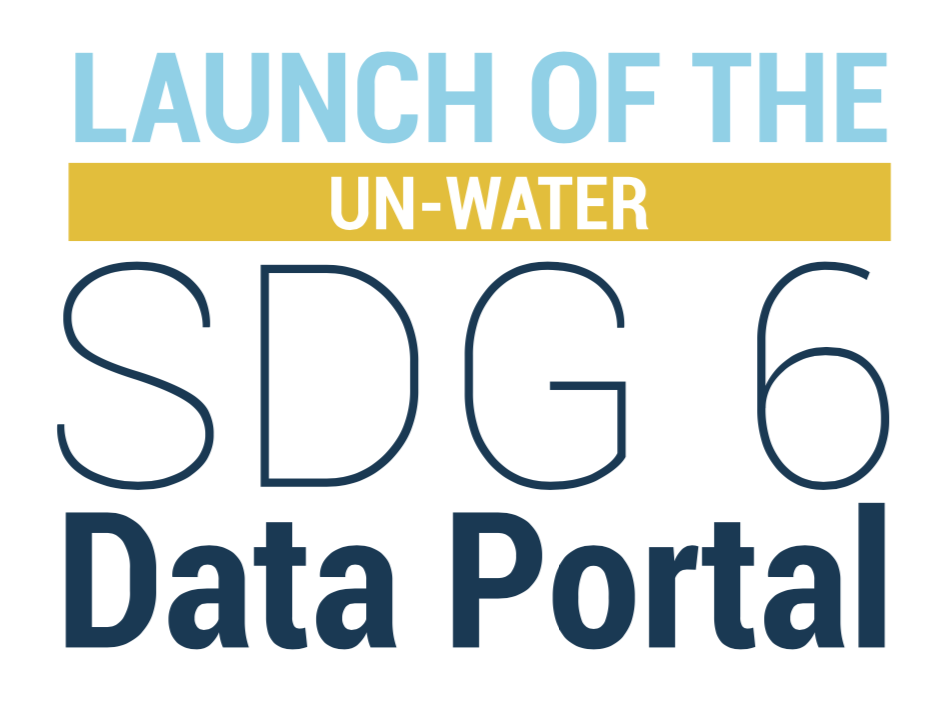💼 Initiatives
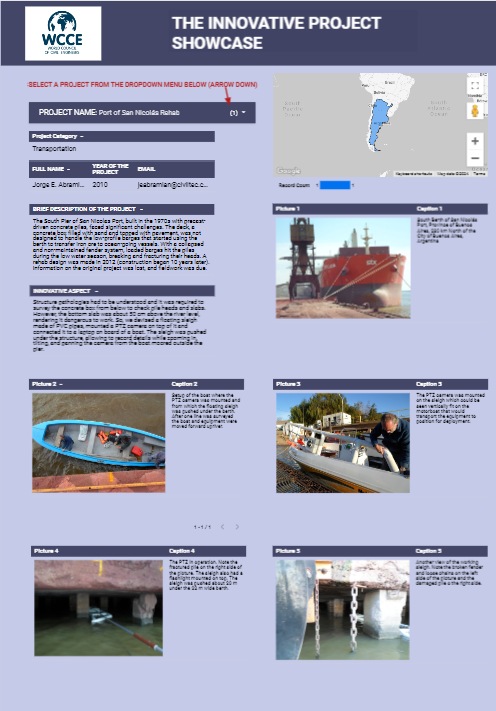 WCCE is excited to showcase innovative projects uploaded by WCCE individual members or civil engineers from its member organisations. Regardless of its size or cost, your project could be a part of this showcase if it demonstrates a particularly innovative aspect or methodology applied during its design, construction, or operation phases. Once your submission is assessed and validated, it will be added to the showcase 🎞 here, giving you the recognition you deserve. Your credit and contact information will be included. To upload your proposal, fill out the form below.
WCCE is excited to showcase innovative projects uploaded by WCCE individual members or civil engineers from its member organisations. Regardless of its size or cost, your project could be a part of this showcase if it demonstrates a particularly innovative aspect or methodology applied during its design, construction, or operation phases. Once your submission is assessed and validated, it will be added to the showcase 🎞 here, giving you the recognition you deserve. Your credit and contact information will be included. To upload your proposal, fill out the form below.
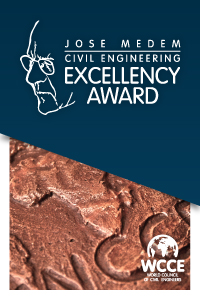 WCCE awards Civil Engineering Excellence Awards through its Jose Medem Award. The first presentation of the Award was made in 2010 during our 5th General Assembly of WCCE. The awardee, civil engineer as defined by the WCCE member society of the nation in which he or she resides is to be selected based on his or her noteworthy contributions to the practice, theory, or public status of civil engineering. Nominees should possess appreciable experience in the profession, international standing as well as significant educational accomplishments.
WCCE awards Civil Engineering Excellence Awards through its Jose Medem Award. The first presentation of the Award was made in 2010 during our 5th General Assembly of WCCE. The awardee, civil engineer as defined by the WCCE member society of the nation in which he or she resides is to be selected based on his or her noteworthy contributions to the practice, theory, or public status of civil engineering. Nominees should possess appreciable experience in the profession, international standing as well as significant educational accomplishments.
Due to the global impacts of the COVID-19, the limitations of lockdown notices and difficulty in travel, the option of conducting webinars is an ideal option to disseminate our initiatives. Through ZOOM and YouTube, a keynote speaker or several panel members speakers will address the virtual audience in 2h webinars through presentations with a 1h Q&A open discussion. All webinars will be available through WCCE’s YouTube channel. Sessions will be delivered in English and Spanish languages and topic will seldom be repeated.
If interested in the Series, check our 📺 Latest broadcasts section.
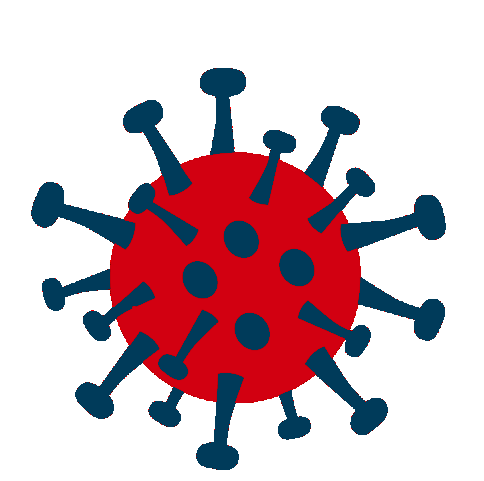 The global impacts of the COVID-19, the limitations of lockdown notices and difficulty in travel among others, have brought to a slowdown and in some cases halted any construction activity. It was WCCE responsibility to assess both the impact of COVID-19 during the pandemic and aftermath, but also the proposals to be made by civil engineers to prevent contagion of users, as well as enhance the health and safety of all professionals an employees. On such grounds, information has been compiled and discussion has been provided within WCCE Let's Talk Civil Engineering Series.
The global impacts of the COVID-19, the limitations of lockdown notices and difficulty in travel among others, have brought to a slowdown and in some cases halted any construction activity. It was WCCE responsibility to assess both the impact of COVID-19 during the pandemic and aftermath, but also the proposals to be made by civil engineers to prevent contagion of users, as well as enhance the health and safety of all professionals an employees. On such grounds, information has been compiled and discussion has been provided within WCCE Let's Talk Civil Engineering Series.
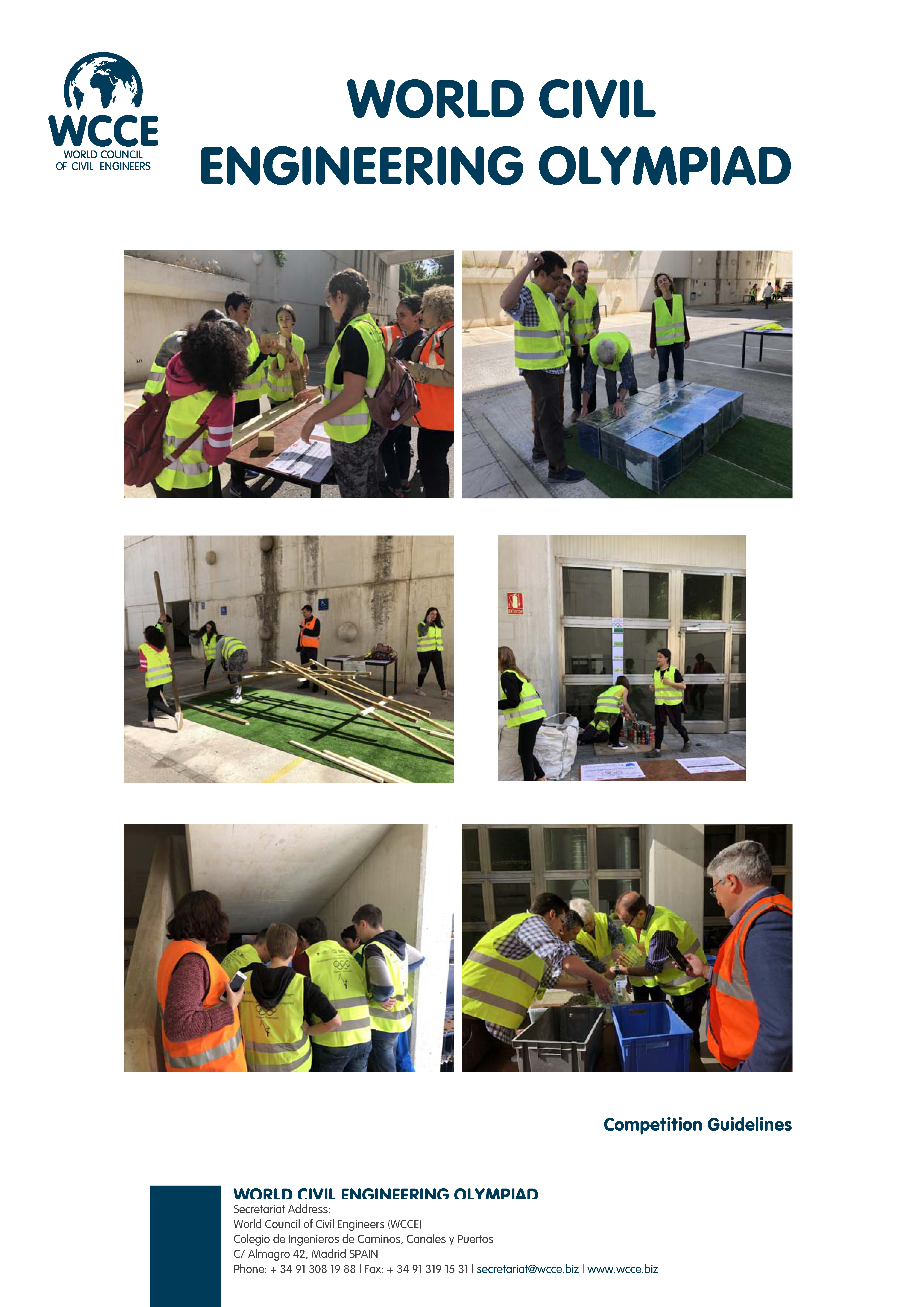 The World Civil Engineering Olympiad - WCEO aims to bring civil engineering into secondary schools and colleges, drawing their interest to become civil engineers. Similarly to other disciplines’ International Olympiad schemes (Mathematics, Biology, etc), WCCE has designed a set of events regarding several disciplines within the scope of the practice of civil engineering. Such initiative was presented during WCCE’s 14th General Assembly held in Lisbon in September 2019, becoming endorsed to be replicated globally.
The World Civil Engineering Olympiad - WCEO aims to bring civil engineering into secondary schools and colleges, drawing their interest to become civil engineers. Similarly to other disciplines’ International Olympiad schemes (Mathematics, Biology, etc), WCCE has designed a set of events regarding several disciplines within the scope of the practice of civil engineering. Such initiative was presented during WCCE’s 14th General Assembly held in Lisbon in September 2019, becoming endorsed to be replicated globally.
This monograph deals with the first of the topics, “Drought and flood management: Best practices and engineering contribution” and has been prepared based on the reference documents in these matters and the contributions made by the members of the organizations that They are listed in the authorship section of the report and contributions.
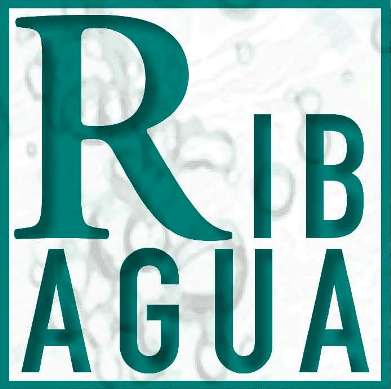
Since 2013 RIBAGUA journal addresses the scientific contribution of Iberoamerican investigators and practitioners in the Spanish and Portuguese languages regarding water issues. To encourage participation from young investigators, the RIBAGUA Best Paper Award was launched. This award is supported by IAHR and WCCE and awards anually the best contribution to RIBAGUA in two categories: best technical paper and best scientific paper; both with strong original research dealing with significant water issues in Ibero-America. The award consists of an award certificate. The Award recipient is selected by the RIBAGUA Editor and the Editorial Board.
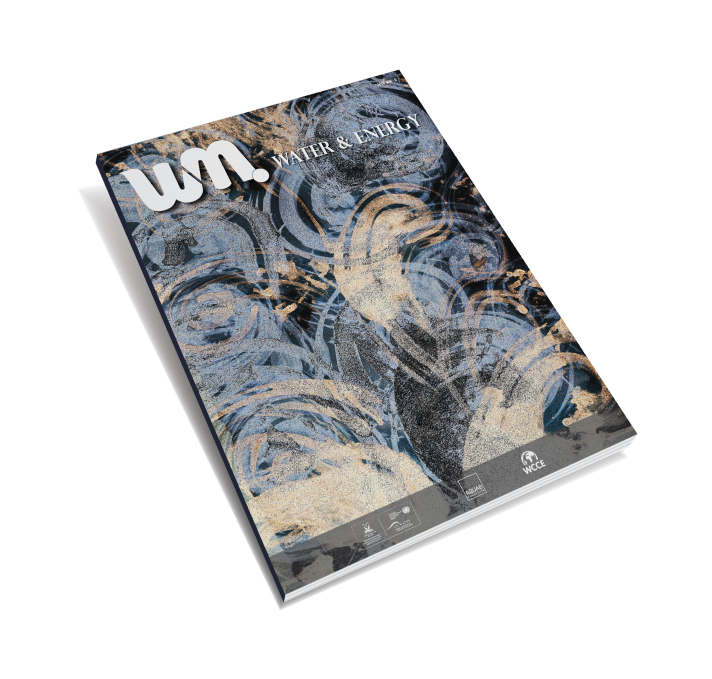 The World Council of Civil Engineers, the United Nations Office in Spain and Aqualogy Foundation signed an agreement to publish a series of monographs under the topics chosen annually to commemorate the "International Year of Water" declared by the UN in the 2013-2015 triennium.
The World Council of Civil Engineers, the United Nations Office in Spain and Aqualogy Foundation signed an agreement to publish a series of monographs under the topics chosen annually to commemorate the "International Year of Water" declared by the UN in the 2013-2015 triennium.
The initiative has been welcomed by several stakeholders including UN agencies which have presented their views on water related topics. Views expressed were non unanimous and even opposite, but have enriched the reader expressing pros and cons of each approach, being respectful with the other.
WCCE's World Annual Civil Engineering Report launched in 2014 consists of a series of articles examining civil engineering implications worldwide with a clear aim of providing an overall point of view of our profession. In addition various WCCE activities and initiatives are also included.
- Category: 📰 Journals
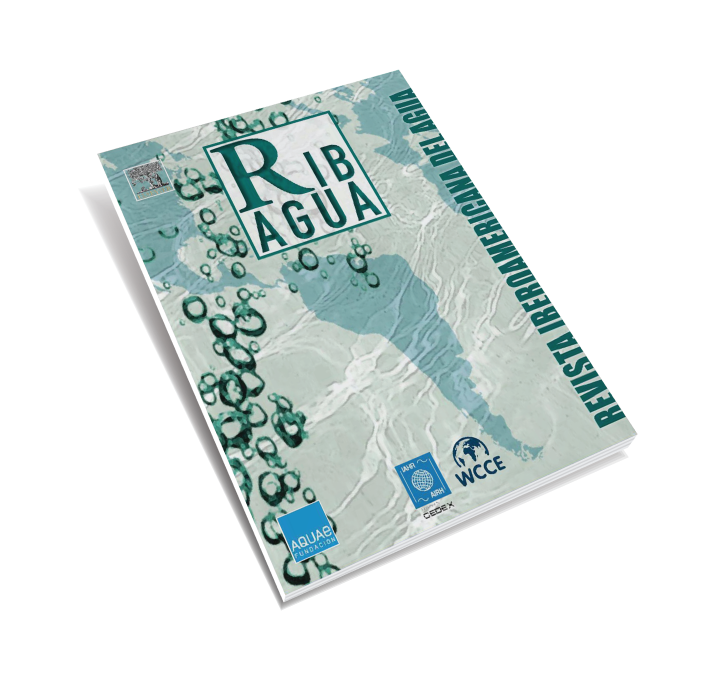 Best practices and innovative research to solve Iberoamerica water issues.
Best practices and innovative research to solve Iberoamerica water issues.
RIBAGUA is a joint journal edited between IAHR - International Association of Hydroenvironmental Resources and WCCE - World Council of Civil Engineers
Publisher: Taylor & Francis
Frequency and format: 2 online issues per year. Hard copies can be requested on demand.
Submission languages: Spanish and Portuguese
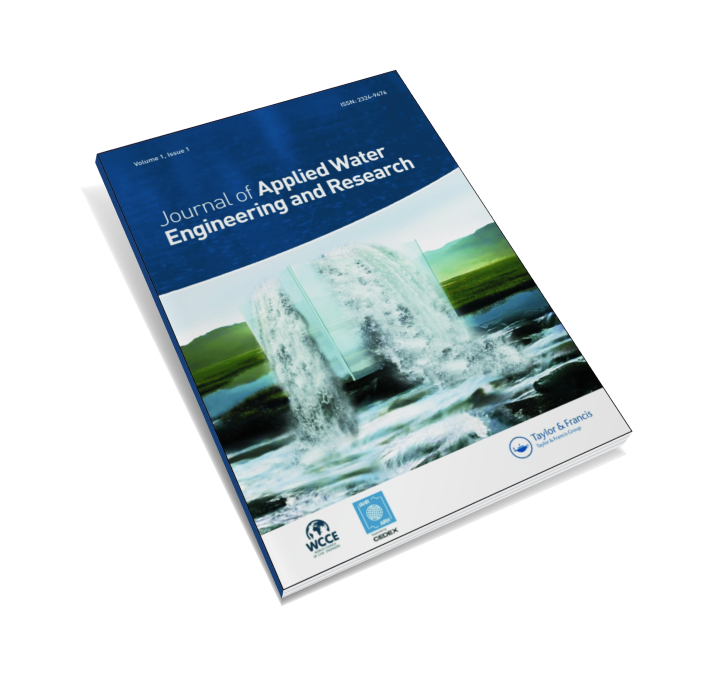
We are proud to introduce the new WCCE initiative, the online Journal of Applied Water Engineering and Research (JAWER) published jointly with the International Association for Hydro-Environment Engineering and Research (IAHR). This peer-reviewed Journal launched in 2013 publishes papers and practical case studies on all aspects of hydro-environment engineering and research. Practically oriented papers and case studies are particularly welcome.
JAWER has been evaluated for inclusion in Scopus by the Content Selection & Advisory Board (CSAB).
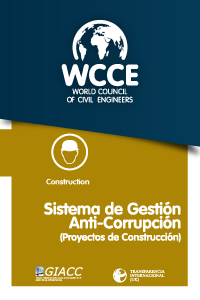 The Project Anti-Corruption System (PACS) is an integrated and comprehensive system designed to assist in the prevention and detection of corruption on construction projects. It uses a variety of anti-corruption measures, which can be integrated into project management. These measures impact on all project phases, on all major participants, and at a number of contractual levels. PACS comprises the PACS Standards and the PACS Templates.
The Project Anti-Corruption System (PACS) is an integrated and comprehensive system designed to assist in the prevention and detection of corruption on construction projects. It uses a variety of anti-corruption measures, which can be integrated into project management. These measures impact on all project phases, on all major participants, and at a number of contractual levels. PACS comprises the PACS Standards and the PACS Templates.


